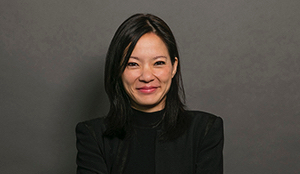News flash - Patent Linkage Implementing Measures came into force in China on 4 July 2021
On 4 July 2021, the National Medical Products Administration (the “NMPA”) and the China Intellectual Property Administration (the “CNIPA”) published the “Implementing Measures for Drug Patent Dispute Early Resolution Mechanism (Trial for Implementation)” (the “Patent Linkage Implementing Measures”), which came into effect immediately. On the same day, the NMPA issued the “Notice for the Implementation of the Patent Linkage Implementing Measures (No.46 of 2021)” (the “Notice No.46”), confirming that on 4 July 2021, the China Marketed Drug Patent Information Registration Platform (the “Patent Platform”) was fully operational.
The Patent Linkage Implementing Measures apply to chemical drugs, biologics and Traditional Chinese Medicine (the “TCM”). The key provisions in the final Patent Linkage Implementing Measures are set out below:
1. Patent registration
A marketing authorisation holder (the “MAH”) must register the patent information on the Patent Platform within 30 days upon obtaining the marketing authorisation (“MA”) certificate in China. The registered patent information must be kept up-to-date and any changes to the patent information must be recorded within 30 days. The registered patent information includes the drug name, dosage form, drug specification, MAH, patent number, patent title, patentee, licensee, patent grant date, patent expiry date, patent status, patent type, claim mapping and contact information, etc.
Only granted patents can be registered on the Patent Platform. The following types of patents are registrable:
- Chemical drugs – API compound patent, composition (containing API) patent, and medical use patent;
- Biologics – sequence patent, and medical use patent;
- TCMs – composition patent, extract patent, and medical use patent.
Medical use patents must be consistent with the indications in the approved drug monograph. Patents for intermediates, metabolites, crystal forms/polymorphs, manufacturing processes, and detection methods are NOT eligible for registration. The MAH is responsible for the truthfulness, accuracy and completeness of the registration information, i.e. the information should be consistent with the MA approval, patent certificate and the patent scope should cover the approved drug.
The public can view the registration information on the Patent Platform (and any changes thereto). It appears that the registered information can be opposed, though the Patent Linkage Implementing Measures do not state how such opposition will be presented. The MAH must deal with the opposition promptly.
The Patent Linkage Implementing Measures have not expressly addressed the timing for filing of the patent information for drugs approved before 4 July 2021. However, according to the Center for Drug Evaluation (“CDE”) of NMPA’s “Notice on the Testing of the Patent Platform” (18 May 2021) and “Advance Notice on Ending the Testing of the Patent Platform” (25 June 2021), and NMPA’s Notice No.46, the patent information of approved drugs can be registered on the Patent Platform (some have already been registered and published), and the registration should be completed as soon as possible.
Patents that are not registered on the Patent Platform cannot participate in the Patent Linkage system in China.
2. Patent Certification
A generic applicant must submit a Patent Certification for each patent registered on the Patent Platform (the “Originator Patent”), amongst other MA application materials. There are four categories of Patent Certification:
- Category I – No Originator Patent;
- Category II – The Originator Patent has expired or been invalidated, or the generic applicant has obtained a patent licence;
- Category III – The generic applicant undertakes not to market the generic drug before the expiry of the Originator Patent;
- Category IV – The Originator Patent should be invalidated, or the generic drug does not fall within the scope of Originator Patent.
The CDE will publish the generic MA application and the Patent Certification within 10 working days of acceptance of the application. The generic applicant is responsible for the truthfulness and accuracy of the Patent Certification and shall, within the same 10 working days timeline, notify the MAH of the Patent Certification and provide supporting documents (e.g. claim chart with generic drug dossier, and other technical documents to support that the drug does not fall within the patent scope) by email and post to the MAH as per the contact information set out on the Patent Platform. If the MAH and the patentee are not the same person, the MAH is required to notify the patentee.
3. Patent linkage proceedings
Against the generic drug submitted with Category IV Patent Certification, the patentee or an interested party can, within 45 days of the generic MA application being published by the CDE, commence proceedings before the court or CNIPA, requesting a judgment/adjudication on whether the generic drug falls within the patent scope (the parties have the right to appeal before the court against the CNIPA adjudication decision). The patentee or interested party shall, within 15 working days upon the case being accepted, submit a copy of the court/CNIPA acceptance notice to the CDE and notify the generic applicant.
If the patentee or interested party does not file proceedings before the court or CNIPA within the prescribed timeline, the generic applicant then has the right to sue or apply for adjudication to confirm that the generic drug does not fall within the patent scope.
4. Moratorium for generic chemical drug with Category IV Patent Certification
The NMPA will, after receiving the copy of the patent linkage case acceptance notice from the patentee or interested party, set a nine-month moratorium for an MA application for a generic chemical drug. During the moratorium, the technical review of the chemical drug MA application can still proceed. The NMPA can only set the nine-month moratorium once, which will start from the case acceptance date, irrespective of whether there are appeals, etc.
The patentee/interested party and generic applicant must submit the court judgment or CNIPA adjudication decision to the CDE within 10 working days upon receipt.
5. MA approvals for generic chemical drugs
The NMPA/CDE will determine the MA approval pathway according to the category of the Patent Certification of generic chemical drugs.
For Categories I and II, the NMPA will decide whether to approve the MA based on the technical review conclusion.
For Category III, if the technical review has been passed, the NMPA will grant the MA approval, but the generic drug can only be marketed after the expiry of the patent right and market exclusivity (if any). However, it is not clear how the undertaking of the Category III Patent Certification will be enforced, e.g. whether the MA certificate will contain an undertaking from the generic applicant as proposed in the previous draft Implementing Measures.
For Category IV, if the patentee or interested party does not initiate the patent linkage case within the prescribed timeline, there will be no moratorium. NMPA will decide whether to approve the generic chemical drug based on the technical review conclusion and the Patent Certification.
For a Category IV drug, which is subject to a moratorium, if the generic chemical drug has passed the technical review, the CDE will handle the application based on the effective court judgment or CNIPA adjudication decision:
1) If, during the moratorium, the CDE receives the effective court judgment or CNIPA decision that the chemical drug falls within the patent scope, the CDE will not release the generic chemical drug to the NPMA for final approval until the patent is soon to expire; or if the NMPA receives such judgment/decision within the final approval procedure, the NMPA will notify the CDE and will not approve the drug until the Originator Patent is due to expire. (i.e. there will be a stay on MA approval)
2) The CDE will release the generic chemical drug for NMPA’s final approval if:
- The court/CNIPA determines that the generic chemical drug does not fall in the patent scope;
- The parties settle the dispute;
- The patent is invalidated; or
- The NMPA does not receive the effective court judgment/mediation or CNIPA decision within the moratorium.
3) If the NMPA stays the MA approval based on a court judgment or CNIPA decision, the generic applicant can apply to the NMPA for the MA approval if:
- The CNIPA decision is overturned by the court;
- The parties settle the dispute;
- The patent is invalidated; or
- Patentee/interested party withdraws the case.
6. MA approvals for biosimilars and generic TCMs
MA applications for biosimilars and generic TCMs will not be subject to a moratorium and the NMPA will decide whether to approve the MA application based on the technical review.
If the court or CNIPA determines that a biosimilar or generic TCM falls within the patent scope, the drug can only be marketed after the expiry of the patent.
7. Market exclusivity for the first approved generic chemical drug which is the first to have a successful in patent challenge
A 12-month market exclusivity period will be granted to the MA applicant of the first generic chemical drug approval who is also the first to have a successful patent challenge, which starts from the MA approval date but should not exceed the duration of the patent being challenged. During the market exclusivity period, the NMPA will not grant an MA for other applicants for generic chemical drugs of the same variety, unless the MA applicants were also involved and were successful in a patent challenge, but the technical review will not be suspended.
A “successful patent challenge” is a generic applicant (submitting Category IV Patent Certification) successfully invalidates the Originator Patent, so that the generic drug can be approved.
8. Remedies and liabilities
If, after the MA approval for a generic drug is granted, the patentee or interested party considers that there is an infringement of its patent, the patentee/interested party can enforce their rights in accordance with the Patent Law and other applicable laws and regulations. The MA granted to the generic drug will not be revoked.
A party who submits a false Patent Certification or wilfully registers unregistrable patents or submits information on irrelevant patent scope may be subject to liabilities, which are not specified in the Patent Linkage Implementing Measures.
Although there was a short delay from when the patent linkage provision in the Patent Law came into effect i.e. 1 June 2021, the patent linkage mechanism in China is, following the publication of the Patent Linkage Implementing Measure now formally established in China. The Chinese Supreme Court and CNIPA announced the formal judicial interpretations and adjudication measures respectively on 5 July 2021 (see separate Bird & Bird articles). Bird & Bird will provide further updates accordingly.

